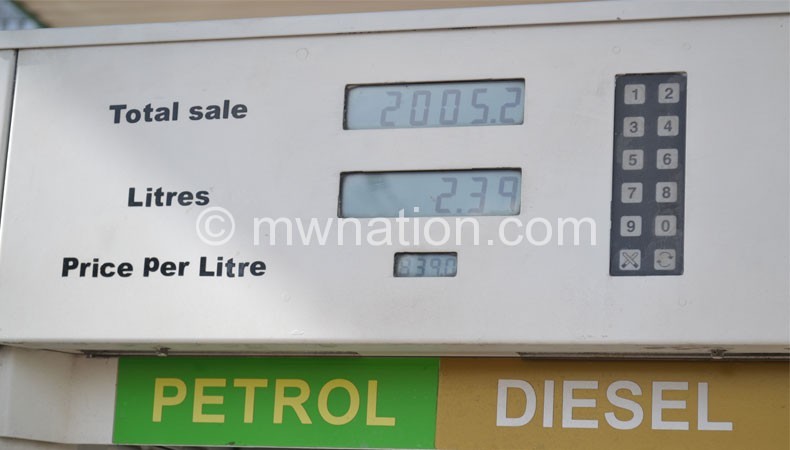Fuel, utility pricesthreaten inflation fall
Utility tariffs and fuel prices which have been maintained at higher prices regardless of kwacha appreciation against background of the automatic pricing mechanisms (APM) will likely threaten the fall of inflation, according to an investment advisory firm.
In its monthly economic report for May 2014, Nico Asset Managers Limited said although the inflation rate continues to decline along with falling food prices and the appreciation of the local currency, the maintained fuel and utility prices will put pressure on the general prices of goods and services and may consequently push up the inflation rate.

On July 4, the Malawi Energy Regulatory Authority (Mera) announced that it had maintained the prices of petroleum products since February.
Mera has maintained the petroleum prices although the value of the kwacha has gained by over eight percent since February when pump prices were last revised.
The price of petrol is at K839 per litre, diesel K853.40 per litre and paraffin at K719.30 per litre.
Mera also maintained electricity tariffs at K35.69 per kilowatt hour due to prevailing economic conditions.
In 2012, Malawi adopted APM for fuel under which pump prices are supposed to be adjusted to reflect price movements on the international market. The country also adopted an automatic pricing system for utilities.
To minimise the impact of frequent utility and fuel price fluctuations, the two systems were set to operate within a threshold of five percent which is also the trigger limit.
But in view of the appreciation of the kwacha, analysts and the business community have been concerned about the sticky utility and fuel prices, arguing it puts pressure on the cost of production and the prices of goods.
According to the National Statistical Office (NSO), Malawi’s year-on-year headline inflation fell by 1.3 percentage points to 22.6 percent in May and has been falling since March. While the Reserve Bank of Malawi (RBM) has projected that the country’s inflation will fall to around 16 percent in December this year, the Economist Intelligence Unit (EIU) expects average inflation to fall to 19.6 percent in 2014 compared to 28.6 percent in 2013.
The IMF indicated that Malawi’s end of period inflation will fall from 23.5 percent in December 2013 to 9.7 percent while the annual average will fall from 28.6 percent in 2013 to 15.1 percent this year. n





